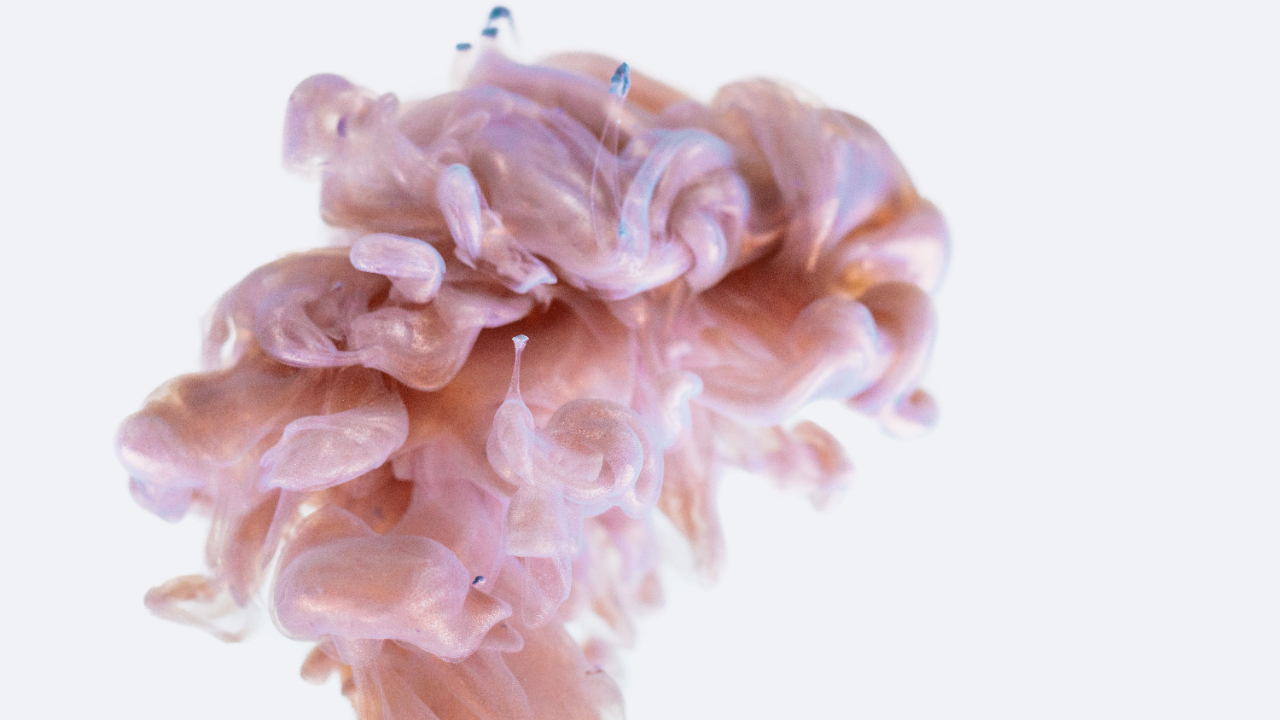Massive Psychological Effects Of Clutter, According To Science
Nov 06, 2023
Nobody has to sell you on the psychological effects of clutter. It’s that classic family movie scene where the kids have destroyed the house, and the mom stands, open-mouthed, in horror. There’s a reason those scenes exist. We can all empathize with feeling defeated by mounds of clutter.
In a nutshell, clutter bothers us. It makes us feel unsettled at its best and infuriated at its worst.
There’s also a certain peace that comes from letting go of things. I’ve heard it described as relieving, cathartic, and even healing.
The psychological benefits of decluttering are as real as the negative psychological effects of the clutter itself.
If you've been feeling like a ridiculous person stressing over the sheer quantity of clutter and misplaced things...well, science says you're not wrong. Research has identified some legitimate psychological effects of clutter that you may not be aware of.
Here's why we have clutter
We have clutter for various reasons - uncontrolled impulses, emotional sentiment, fear of the future, guilt, obligation, etc. In many ways, we perceive our belongings as a part of us - extensions of ourselves. If you want to dive deeper into this, I have an article you can check out called "This is why you have clutter- the bad, the ugly, and the truth."
They represent our past memories, our present habits, and our goals for the future.
Because of the above reasons, decluttering can be emotionally difficult. Add to that the required effort of going through years of dusty belongings, and it’s no surprise that clutter remains a widespread struggle.
Our attachments to belongings blended with the beliefs we hold about our belongings (including beliefs about our own abilities and habits), weigh heavily on any resolution to let go.
Is a cluttered house a sign of a problem?
Author Tisha Morris, who wrote Feng Shui Your Life, refers to clutter as “stagnant energy.” She says, “Where there’s clutter in your home, there will be clutter in [you] — either physically, mentally, or emotionally.”
Have you ever heard the saying, "You can tell a lot about a person by their trash"? Well, our clutter also says a lot about us.
For example, if your clutter consists of other people’s stuff, you might have issues with boundaries; if your clutter is largely memorabilia from your past, you may have trouble letting go of the past and moving forward; and if you constantly find yourself relying on the phrase “better to have it and not need it than need it and not have it” or “What if I need this someday?” that’s a sign of uncertainty or distrust in the future.
For unfinished projects - unused art supplies, an untouched guitar sitting in the corner- this could represent perfectionist standards or identity misalignment. Peacefully passing time as an artist may have been more enjoyable in theory than in reality.
Our homes are a vivid reflection of our minds. But are our minds also a reflection of our clutter? Well, that's what we're here to talk about today: the psychological effects of clutter. Let's dive in!
So What Are The Psychological Effects Of Clutter According To Science?
1. Stress + increased cortisol levels
The most obvious psychological effect of clutter is stress. But it's not just you; many research studies have proven that a physical stress response correlates with cluttered environments.
A study by UCLA observed 32 middle-class families and found that “all of the mothers’ stress hormones spiked during the time they spent dealing with their belongings.” In this study, saliva swabs found consistent increases in cortisol levels (the human stress hormone).
So, how much of an impact does this have on our daily lives? Dr. Rick Hanson, the author of Hardwiring Happiness, explains how cortisol can result in structural changes to our brain, causing long-term sensitivity to stress.
❝Cortisol goes into the brain and stimulates the alarm center, the Amygdala. And kills neurons in the hippocampus which, besides doing visual/spatial memory, also calms down the amygdala and calms down stress altogether. So, this mental experience of stress, especially if it’s chronic and severe, gradually changes the structure of the brain. So we become aggressively more sensitive to stress. The mind can change the brain can change the mind.❞
-Dr. Rick Hanson
I love that last line- "The mind... can change the brain... can change the mind." 🤯 Daily stress actually changes the physical structure of your brain to be even MORE sensitive to stress.
Keep that in mind if you always find yourself stressed- it's worth tending to before permanent changes occur.
2. Psychosocial effects of clutter
Tidy homes indicate “having it together,” especially for women. So, it's no surprise that cluttered environments can result in feelings of low self-worth. It's likely one of the many reasons clutter has been linked to depression, but more on that later.
In a study called “The Dark Side of Home,” released by The Journal of Environmental Psychology, due to the link between our self-perception and our homes, "clutter had a negative impact on the psychological home and subjective well-being" of their participants.
Notice it said "subjective well-being," in other words, how the participants felt about their well-being. Self-perception is key to overall life satisfaction, confidence, and coping capabilities. When we feel less capable and less in control of our own space, anxiety and depression can set in.
Not only does your environment impact how you feel about yourself, but it may reinforce feelings you already have as a form of confirmation bias. The shame and inadequacy associated with cluttered environments contribute to many social effects of clutter.
I’ve had countless people tell me that they refuse to have company over or that their children aren’t allowed to have friends visit. This leads to social isolation and lowered confidence.
❝We hang onto far more objects than we need, and, instead of motivating us, they become talismans of guilt and shame.❞
-June Saruwatari- Founder of The Organizing Maniac
3. Distraction from focus
Shocker alert- clutter is distracting. It causes our brains to shift into multitasking mode, which is incompatible with focusing. While juggling your thoughts may sound impressive, it's been shown to waste time and decrease efficiency.
In fact, it's been proven that the human brain can’t focus on more than one task at a time, meaning the notion of multitasking (at least the way we think of it) doesn't exist. Sure, we can have more than one task pending at any given time, but our attention is only being dedicated to one.
Instead, when we believe we're multitasking, what's actually happening is our brains are shifting rapidly from one line of thought to another, a practice called ‘context switching.’
Research conducted at Princeton University and MIT concluded that the amount of time and efficiency lost for each additional task increases exponentially. While one additional task resulted in a 20% loss of time, five tasks resulted in a whopping 75% loss.
Another study by Princeton University found that clutter competes for your brain's resources, preventing focus and limiting processing power:
Multiple stimuli present in the visual field at the same time compete for neural representation by mutually suppressing their evoked activity throughout visual cortex, providing a neural correlate for the limited processing capacity of the visual system.
In short, clutter is distracting. One of the major psychological effects of clutter is that it can be mentally debilitating for children and adults with ADD/ADHD.
4. Behavioral effects
Frustration. Irritation. Avoidance. Apathy. Cluttered, chaotic environments can bring on a garden variety of unpleasant emotions that domino into unpleasant behaviors. Clutter has been linked to 2 of the top 5 reasons for divorce - excessive arguments and financial problems.
A study published in the Journal of Applied Developmental Psychology shows the effects of a chaotic environment on children:
❝Noisy, crowded homes characterized by a lack of routines may undermine children’s ability to regulate emotions and behavior and may provide children with opportunities to act out.❞
-Journal of Applied Developmental Psychology
Much of our energy is derived from our environment. Very few things can alter our mood and emotions as immediately as our environment. Simply stepping into a room can soothe a person into calmness or move them into uneasiness.
Beyond the aesthetics of the space, being overwhelmed by disorganization and clutter can lead to apathy and avoidance. The effect is inaction via procrastination.
Our environments inform our habits and behaviors. That's why aligning your environment with your goals and intentions is commonly recommended.
5. Clutter wreaks havoc on your mental health
We already touched on how cluttered homes lead to isolation, stress, and low self-worth, all directly linked to depression. In addition, cluttered environments have been shown to correlate with increased rates of insomnia, which leads to poor hormone regulation- another core factor in mental health management.
A study published in the 'Personality and Social Psychology Bulletin' called 'No Place Like Home', found that the way people described their homes reflected whether their time at home felt restorative or stressful. In this study, women with higher stressful home scores had increased depressed moods over the course of the day, whereas women with higher restorative home scores had decreased depressed moods over the day.
Which came first, the chicken or the egg?
Of course, there is the whole chicken-or-the-egg debate- are mental health disorders the catalyst for cluttered environments or the other way around? As with most chicken-or-egg discussions, this may be seen as more of a feedback loop with both influencing each other.
Cognitive Behavioral Therapy Model (CBT), a common current foundation for therapy practices and life improvement, indicates that our thoughts impact our emotions, which then impact our behaviors, which then impact our thoughts, and the cycle continues. This cycle can keep people stuck in ruts.
One little piece not indicated in the primary CBT model is the results of those actions. Our behaviors (or actions) directly result in our environments (or results). For example, you're at the store, and something catches your attention, you feel a certain way about it (FOMO, excitement, interest), you take an action based on that emotion (buy the thing, don't buy the thing), and your environment is impacted.
Or you consider donating a gift from a family member...but you feel guilty...so you hold onto it in the back of your closet...a series of these same processes have now led to a cluttered closet.
But it doesn't stop there. Your environment then influences your thoughts, which then influence your emotions, and the cycle continues.
Belongings that sway emotions
Some belongings may directly cause stress, anger, and sadness due to the nature of the item. Holding onto these things can perpetuate depression or anxiety. In this way, the psychological effects of clutter aren’t only related to the fact that there is clutter but to the types of clutter present.
Many clear out belongings after a divorce or breakup in order to simultaneously clear their minds for a fresh start. I’ve heard from widows who struggled to heal from their los due to being surrounded by a spouse’s belongings.
The Psychological Effects Of Clutter In A Nutshell
Our environments are closely related to our happiness and ability to thrive, and the psychological effects of clutter can sway whether our environments are supportive or detrimental.
Some of the psychological effects of clutter, according to science, are:
- Stress and increased cortisol levels
- Feelings of shame or inadequacy
- Distraction from focus and decreased productivity
- Negative behavioral effects
- Mental health impacts



